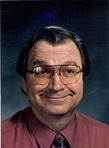The Round House
Louise Erdrich is a frequent contender for the National Book Award. She finally won it for THE ROUND HOUSE. Could it be because she used a more novelistic approach this time around?
Those familiar with Erdrich style know that most often she uses a WINESBERG, OHIO style, what seems like a collection of short stories held together by common characters and a persistent theme. It's off putting for some readers. Personally I prefer LOVE MEDICINE to THE ROUND HOUSE. It's a better book by leaps and bounds.
THE ROUND HOUSE is about a group of thirteen-year-old boys who seem to be into a lot of mischief we don't associate with boys that age. They drink the hard stuff, they drive cars, one has a serious relationship that seems to have been consummated. But the plot revolves around the rape of Geraldine Coutts, the main character's mother. She's sort of a tribal social worker. Early on we get a suspect; as a mystery fan, I thought he had to be a red herring. But all the evidence points toward him, and Joe, the main character, wants revenge. He does something terrible and has bad dreams about what he did.
Joe has three best friends: Cappy, Zack, and Angus. Cappy has to beat the girls off with a stick. The other two guys might as well not be in the story. They're flat characters, in the vernacular. Besides his parents, Sonja and Whitey as featured quite a bit. Sonja is a knockout. Joe is always trying to sneak a peak at her breasts. Whitey is really jealous, and when she starts sporting diamond earrings he beats her. Mooshum represents the older generation. He celebrates what sounds like his hundredth birthday. Sonja gives him a strange present. She does a sort of strip tease for him. I thought that was a bit over the top.
Erdrich seems to be making a point about the evil thing that Joe did in the conclusion. “What goes around comes around” would fit the bill. Prior to the ending, Erdrich provides some forshadowing. The events of the story are happening in 1988, and Joe is telling the story from the future where he's become a lawyer and is doing the job his father did before him, tribal judge. So we already know it's not Joe who pays the price. There's also a point where Joe learns that his father doesn't have much authority as a tribal judge. The reservation is split between free holding, the reservation, and federal pockets. Geraldine doesn't remember where she was raped; as a result the man who raped her will be tried under federal jurisdiction, and let's just say her case is not a high priority. So then there's a question we need to think about: Was Joe justified in doing what he did?
Those familiar with Erdrich style know that most often she uses a WINESBERG, OHIO style, what seems like a collection of short stories held together by common characters and a persistent theme. It's off putting for some readers. Personally I prefer LOVE MEDICINE to THE ROUND HOUSE. It's a better book by leaps and bounds.
THE ROUND HOUSE is about a group of thirteen-year-old boys who seem to be into a lot of mischief we don't associate with boys that age. They drink the hard stuff, they drive cars, one has a serious relationship that seems to have been consummated. But the plot revolves around the rape of Geraldine Coutts, the main character's mother. She's sort of a tribal social worker. Early on we get a suspect; as a mystery fan, I thought he had to be a red herring. But all the evidence points toward him, and Joe, the main character, wants revenge. He does something terrible and has bad dreams about what he did.
Joe has three best friends: Cappy, Zack, and Angus. Cappy has to beat the girls off with a stick. The other two guys might as well not be in the story. They're flat characters, in the vernacular. Besides his parents, Sonja and Whitey as featured quite a bit. Sonja is a knockout. Joe is always trying to sneak a peak at her breasts. Whitey is really jealous, and when she starts sporting diamond earrings he beats her. Mooshum represents the older generation. He celebrates what sounds like his hundredth birthday. Sonja gives him a strange present. She does a sort of strip tease for him. I thought that was a bit over the top.
Erdrich seems to be making a point about the evil thing that Joe did in the conclusion. “What goes around comes around” would fit the bill. Prior to the ending, Erdrich provides some forshadowing. The events of the story are happening in 1988, and Joe is telling the story from the future where he's become a lawyer and is doing the job his father did before him, tribal judge. So we already know it's not Joe who pays the price. There's also a point where Joe learns that his father doesn't have much authority as a tribal judge. The reservation is split between free holding, the reservation, and federal pockets. Geraldine doesn't remember where she was raped; as a result the man who raped her will be tried under federal jurisdiction, and let's just say her case is not a high priority. So then there's a question we need to think about: Was Joe justified in doing what he did?
Published on June 22, 2016 11:57
•
Tags:
coming-of-age-novel, dave-schwinghammer, david-a-schwinghammer, fiction, literary-fiction, louise-erdrich, national-book-award-winner, native-american-novelist, think-piece
No comments have been added yet.



